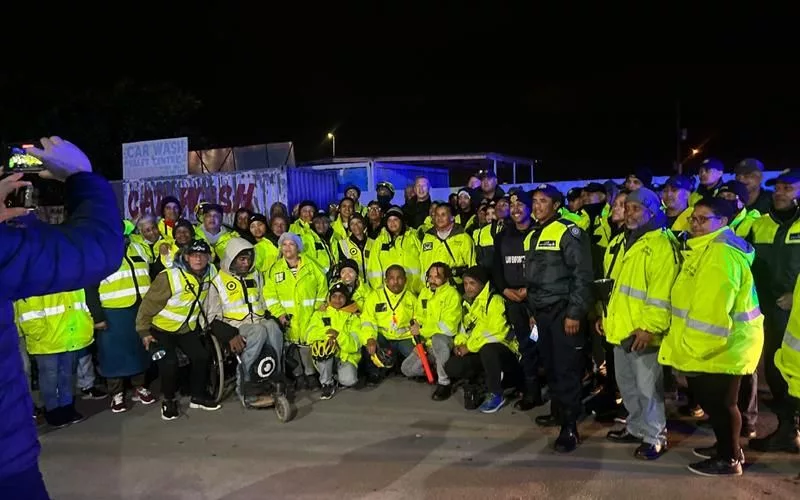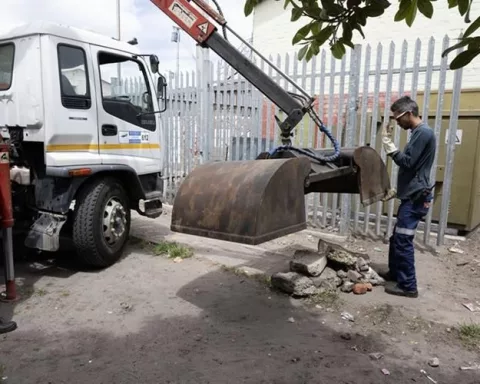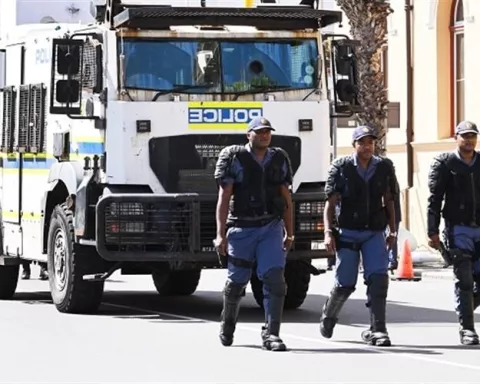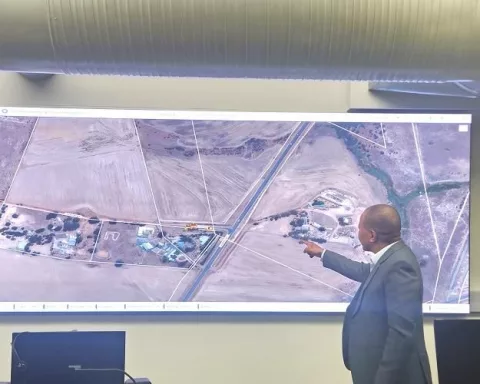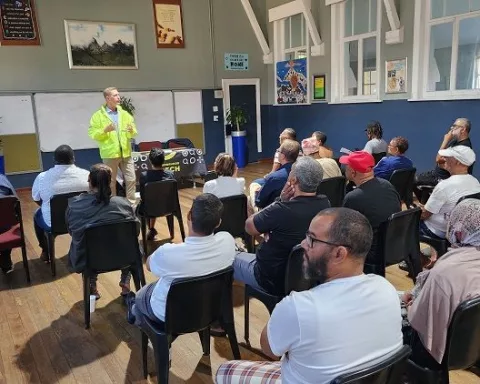The Neighbourhood Watch Support Programme in Cape Town provides training and support for accredited Neighbourhood Watch (NW) groups, with courses in first aid, situational crime prevention, and preparedness for civil unrest. Over the years, the programme has expanded and improved, with an allocation of R6 million for funding and equipment upgrades. NW groups play a vital role in community safety and advocacy, and the programme is committed to empowering and strengthening these groups through technological advancements and operational autonomy.
What is the Neighbourhood Watch Support Programme?
The Safety and Security Directorate’s Neighbourhood Watch Support Programme provides training and support for accredited Neighbourhood Watch (NW) groups in Cape Town. Since its inception, the programme has expanded to offer courses in first aid, situational crime prevention, and preparedness for civil unrest. NW groups play a vital role in community advocacy and safety, and the programme is committed to providing funding, equipment enhancements, and technological advancements to further strengthen these groups.
A Journey of Progress and Expansion
Over a span of sixteen years, the Safety and Security Directorate’s Neighbourhood Watch Support Programme has proven to be an ever-progressing structure within the metropolis. Their unwavering dedication and commitment have been crucial in improving the performance of close to 500 accredited Neighbourhood Watch (NW) groups.
Initially, the programme was designed with a fundamental focus on providing ordinary training in community policing principles and basic patrol apparatus. However, since its inception, the NW Support Programme has experienced significant growth and expansion. The fiscal year 2023/24 witnessed the roll-out of several integral training opportunities, including courses in first aid, situational crime prevention, and preparedness for civil unrest. This comprehensive expansion of the programme has bolstered the partnership between the voluntary organisations, the City, and other law enforcement bodies.
Role of Neighbourhood Watches and Embracing Potential
Numerous NW groups have commendably broadened their scope by offering help in times of natural disasters and during the recent national elections. They have embodied the essence of community advocacy and devotion. Their diverse role serves as a clear reflection of the City’s gratitude for the profound impact these organisations have on communities. The City acknowledges the direct link between a more fortified NW infrastructure and a stronger city-wide defence against adversities, whether they are criminal activities or natural catastrophes.
Alderman JP Smith, the City’s Mayoral Committee Member for Safety and Security, envisions the potential for further growth. He encourages communities that currently lack NW arrangements to consider the support available and the achievements of existing watch groups. He believes these accomplishments should serve as an impetus for the establishment and registration of their own NWs.
Funding and Equipment Enhancements
In the current fiscal year, the budget has allocated an impressive R6 million for ward allocations and the Directorate budget. These funds are earmarked to ensure the continuation of capacity-enhancement initiatives through training in first aid, combat and self-defence skills, as well as basic firefighting.
Equipment upgrades promise to provide substantial improvements for the NWs. These include trauma and burn kits for immediate response, flashlights, spotlights, body cameras, dashboard cameras, bicycles, high visibility jackets, two-way radios, and state-of-the-art night vision equipment.
The commitment of the Directorate to operational efficiency led to the creation of two operational safety hubs situated in Somerset West and Mnandi Beach. Plans are already underway to establish an additional two hubs in the upcoming financial year.
Operational Autonomy and Technological Advancements
The vetting process for the NWs falls under the purview of the Safety and Security Support Team. However, the NW teams maintain independence over their operations. Acknowledging the increasing shift towards digitisation, the Directorate has developed a user-friendly mobile application. This groundbreaking instrument offers features such as recording patrol times, indicating incident response status, capturing and reporting incident details, as well as streamlining administration and collaboration with the City’s law enforcement bodies.
The phased deployment of this application will initially benefit 15 out of 50 teams. The completion of each phase will represent a significant stride forward for the NWs and the communities they serve.
Information on starting Neighbourhood Watch can be found on the City’s website.
In conclusion, the City’s progressive stance in broadening the training opportunities and technological advancements for Neighbourhood Watches has successfully established a robust system of community safety and security. This model, strengthened by the commendable dedication of NW groups across the metropolis, serves as an effective countermeasure to both criminal threats and natural disasters. It has proven that the best defence indeed is a community that actively watches, cares, and acts.
What is the Neighbourhood Watch Support Programme?
The Safety and Security Directorate’s Neighbourhood Watch Support Programme provides training and support for accredited Neighbourhood Watch (NW) groups in Cape Town. Since its inception, the programme has expanded to offer courses in first aid, situational crime prevention, and preparedness for civil unrest.
How has the programme expanded over the years?
The programme has expanded significantly, offering courses in first aid, situational crime prevention, and preparedness for civil unrest. NW groups have also broadened their scope by offering help in times of natural disasters and during national elections, embodying the essence of community advocacy and devotion.
How is the programme funded?
In the current fiscal year, the budget has allocated R6 million for ward allocations and the Directorate budget. These funds are earmarked to ensure the continuation of capacity-enhancement initiatives through training in first aid, combat and self-defence skills, as well as basic firefighting.
What equipment upgrades are available for NWs?
Equipment upgrades include trauma and burn kits, flashlights, spotlights, body cameras, dashboard cameras, bicycles, high visibility jackets, two-way radios, and state-of-the-art night vision equipment.
How do NWs maintain operational autonomy?
While the vetting process for NWs falls under the purview of the Safety and Security Support Team, the NW teams maintain independence over their operations. The Directorate has developed a user-friendly mobile application, streamlining administration and collaboration with the City’s law enforcement bodies.
How can communities start their own NWs?
Information on starting Neighbourhood Watch can be found on the City’s website. The City encourages communities that currently lack NW arrangements to consider the support available and the achievements of existing watch groups.

